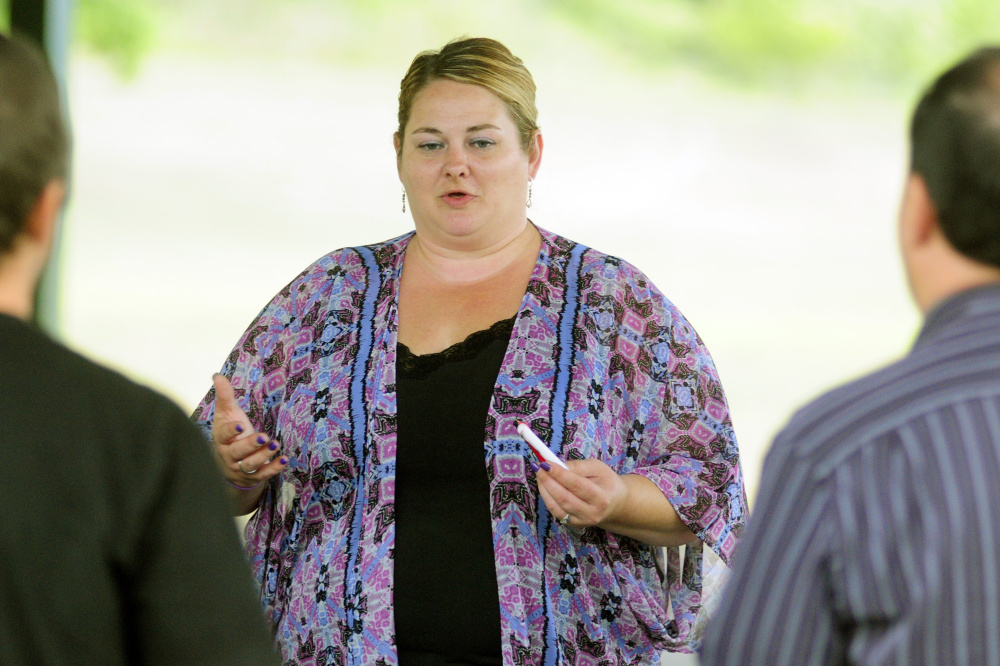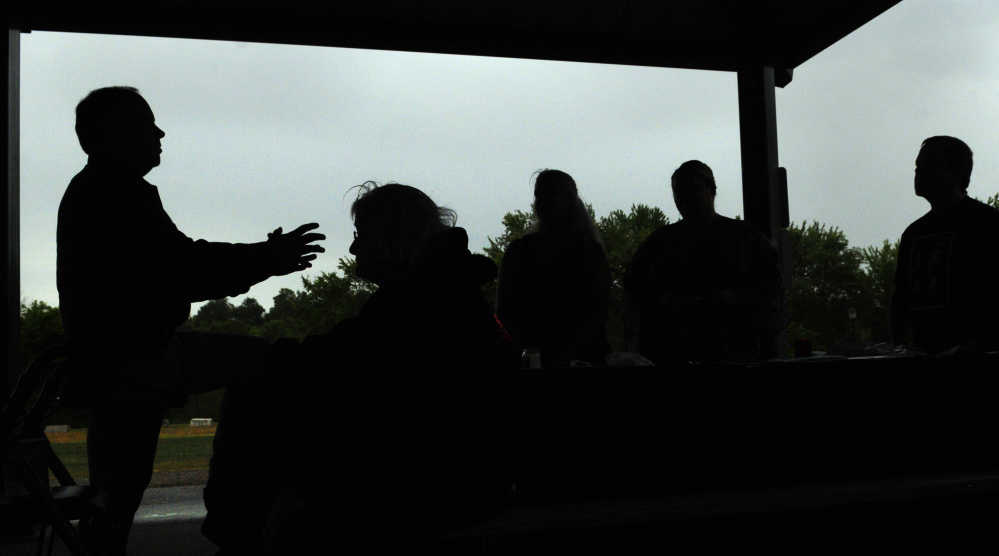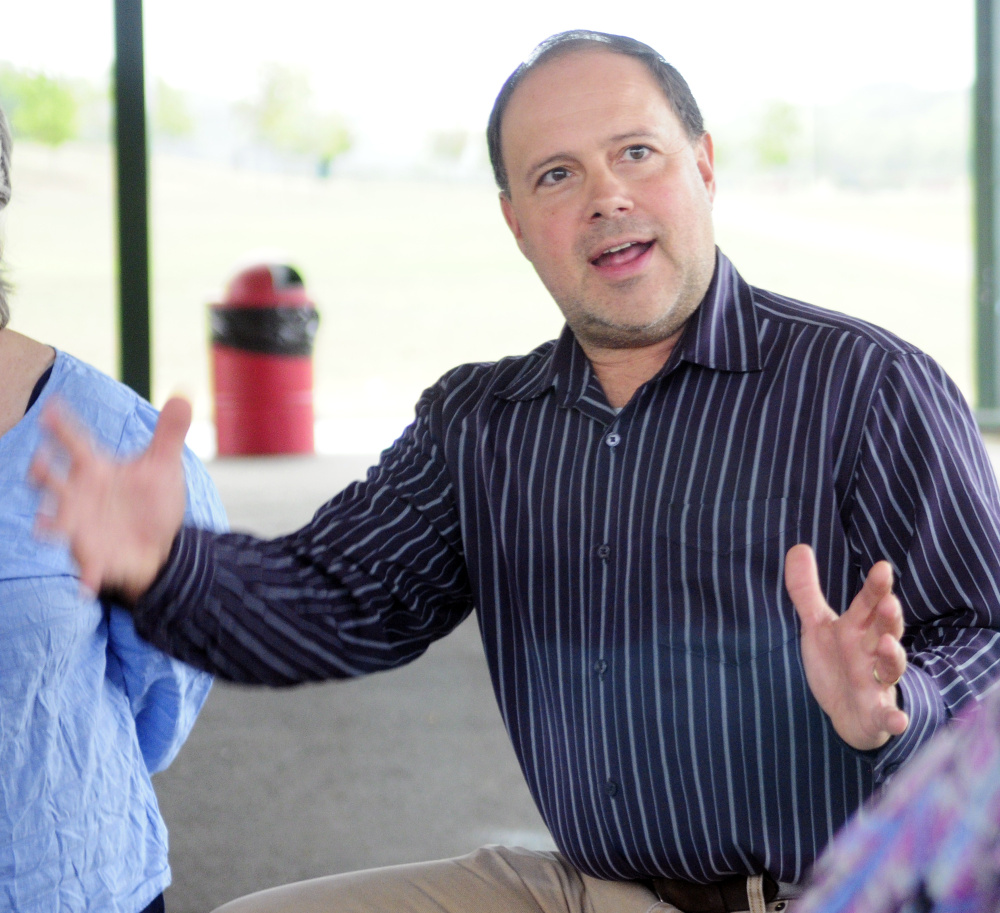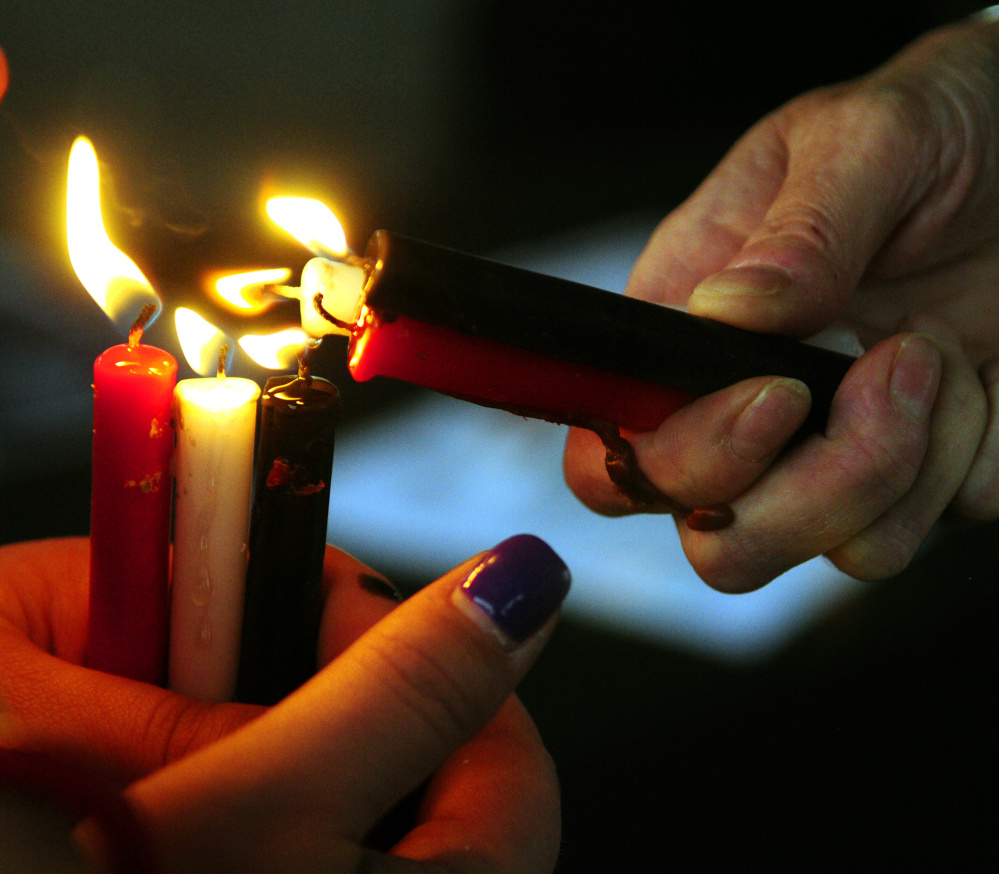AUGUSTA — Shannon Hamilton didn’t want to live. She stood on Memorial Bridge in Augusta thinking about jumping, because she thought being dead was a better option that continuing to feel the way drug addiction made her feel.
Hamilton, 38, shared her story to a small group as part of The Addict’s Mom’s national Lights of Hope day event at Mill Park. After several people spoke, candles were lit in three colors to remember those who need recovery, those in recovery and those who’ve been lost because of addiction.
“I was the lowest of the low, and my bottom just kept getting lower and lower,” Hamilton said, “but I have a great life now, and I’m happy to be alive.”
Karen Hardy, of Belgrade, helped organize the event and came to know of The Addict’s Mom organization after moving to Maine a few years ago. Her son has been using drugs for about seven years, she said, and she was “overwhelmed by stories and information and the heart-wrenching feelings of desperation and loss expressed every day by members of the group.”
Part of the group’s campaign is to continue to raise awareness and to help fight the stigma that still gets attached to addiction.
Becky Hanscom, of Jefferson, lost her son six years ago, a few days before he was set to begin treatment for an addition to fentanyl, a synthetic opioid prescribed for pain management.
“We’ve got to stop the shame, and we’ve got to support families,” Hanscom said. “We need to let people speak about it and be heard.”
The Addict’s Mom is a creating an environment where discussion can take place, Michael Dufresne said, which is part of the recovery process. Dufresne, a family medicine doctor and outpatient addiction counselor with offices in Augusta and Freeport, said too often addicts and their families and friends aren’t comfortable speaking about their loved ones’ addiction out of fear of being ostracized.
“This isn’t a problem for Augusta and this isn’t a problem for Maine,” he said. “This is a problem worldwide, and there is not enough of an effort to help people maintain a state of sobriety.”
Dufresne said addicts who acknowledge that there is some driving force for their behavior have a great chance at recovery.
“We need people talking about this publicly and sharing their stories and raising awareness so we can get more support,” he said. “There should be a lot more money going toward treatment given the magnitude of the problem.”
Hamilton’s story moved those standing under the roof at Pavilion 1 at Mill Park as a rare summer rainstorm passed through Augusta.
Growing up in what she called a normal house, Hamilton wasn’t exposed to drugs or alcohol until she started taking them to parties at age 15 in order to make more friends and fit in. She became addicted to Vicodin after a dental procedure when she was 20, and she began visiting multiple doctors and making any excuse to receive continued prescriptions.
“I was abusing other drugs, too, and I tested positive for cocaine many times; so I ultimately stopped getting prescribed Vicodin because of my other drug use,” Hamilton said.
Without a prescription to Vicodin, Hamilton turned to heroin, which she used for nearly a year. After deciding not to jump from the bridge, Hamilton had a wake-up call while living in a local crack house.
“I was doing whatever drug I could get until one day, the owner of the house said I was cut off,” Hamilton said. “She said I had two children at home and she asked why I was living in her crack house. That was the wake-up call.”
After going through detoxification and 12-step and other programs, Hamilton has been in recovery for four years. She has an 18-year-old son in college and a 10-year-old with autism who she says is the light of her life. She just hopes her oldest son thinks his education is more important than drugs and alcohol.
Hamilton said she loves waking up every day and loves going to work, and she is even pursuing her dream of becoming a cosmetologist, something she never thought was possible.
“I remember being told that if I wanted a sober life, I was going to have to work for it,” she said. “Everything I’ve done I’ve worked for, and I can’t believe where I am today.”
Jason Pafundi — 621-5663
Twitter: @jasonpafundiKJ
Send questions/comments to the editors.







Comments are no longer available on this story